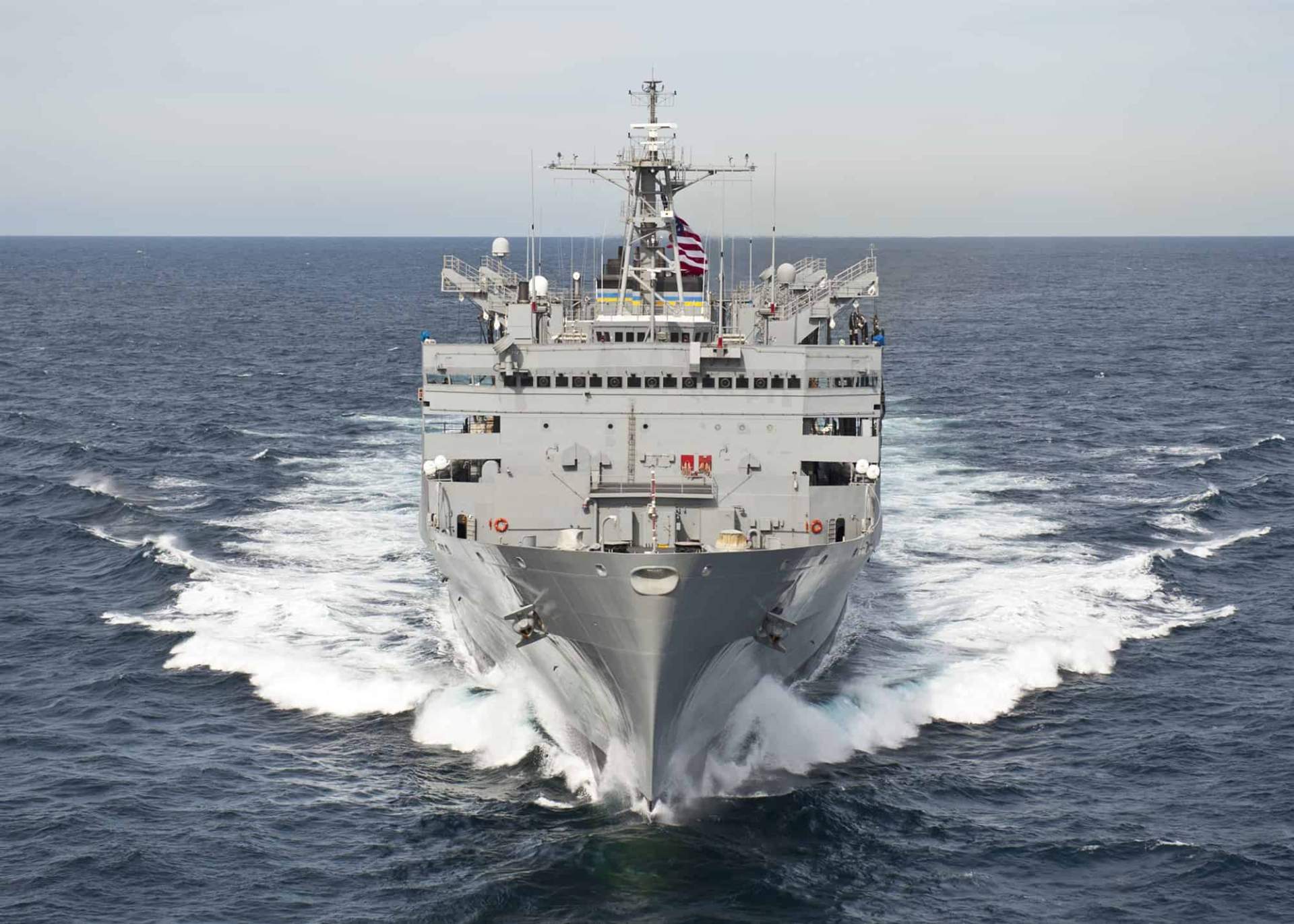Navy sends ships to Russia's Barents Sea for first time since 1980s

Four U.S. Navy ships entered the Barents Sea off Russia's northwestern Arctic coast Monday — the first time U.S. warships have entered the area since the 1980s — according to a statement Monday from the Navy's 6th Fleet.
Although it is in international waters, the Barents Sea is Russia's naval backyard. The Northern Fleet, the heart of the Russian navy, is anchored in Severomorsk — tucked in a bay off the Barents Sea.
The Navy said it notified the Russian Defense Ministry on Friday of its intention to send ships into the Barents. Russia's military said in a statement Monday that "Northern Fleet assets are monitoring the activities of the NATO strike group."
Military tensions between the U.S. and Russia remain high six years after Russia annexed Crimea from neighboring Ukraine. Even amid the COVID-19 epidemic, military messaging between the two sides has continued.
Last week, Russia sent nuclear-capable bombers and submarine hunters on long-distance patrols along Western borders. Two weeks ago, the U.S. accused Russia of testing an anti-satellite missile after Russia called for talks on limiting the deployment of weapons in outer space.
The two sides are locked in disagreement over the future of nuclear arms control, with a major bilateral arms control treaty, New START, set to expire early in 2021. A decision on extending the treaty is required this year.
In its statement Monday, the Russian Defense Ministry noted that the U.S. destroyers that entered the Barents Sea — the Porter, the Donald Cook and the Roosevelt — are armed with missile defense systems.
The systems are a cornerstone of U.S.-Russian disagreements about nuclear arms control. Russia argues that the missile defense systems destabilize international security, and for years it has demanded that they be included in future arms control cuts.
The U.S. vessels are no stranger to the Russian navy, having frequently been involved in close encounters between U.S. and Russian forces in the Baltic and Black seas. The grouping was joined by a U.S. supply vessel and a U.K. frigate, the HMS Kent.
All five of the ships participated in anti-submarine exercises in the Arctic over the weekend.
The U.S. Navy has said Russian submarine activity in the region has returned to Cold War levels, and the Russian military has made it clear that new submarines are a key part of modernization plans.
Photo: The logistics ship USNS Supply, one of the vessels in the grouping, in March 2012.Scott Pittman / U.S. Navy file
Link: https://www.nbcnews.com/news/us-news/u-s-navy-sends-ships-russia-s-barents-sea-first-n1199281











